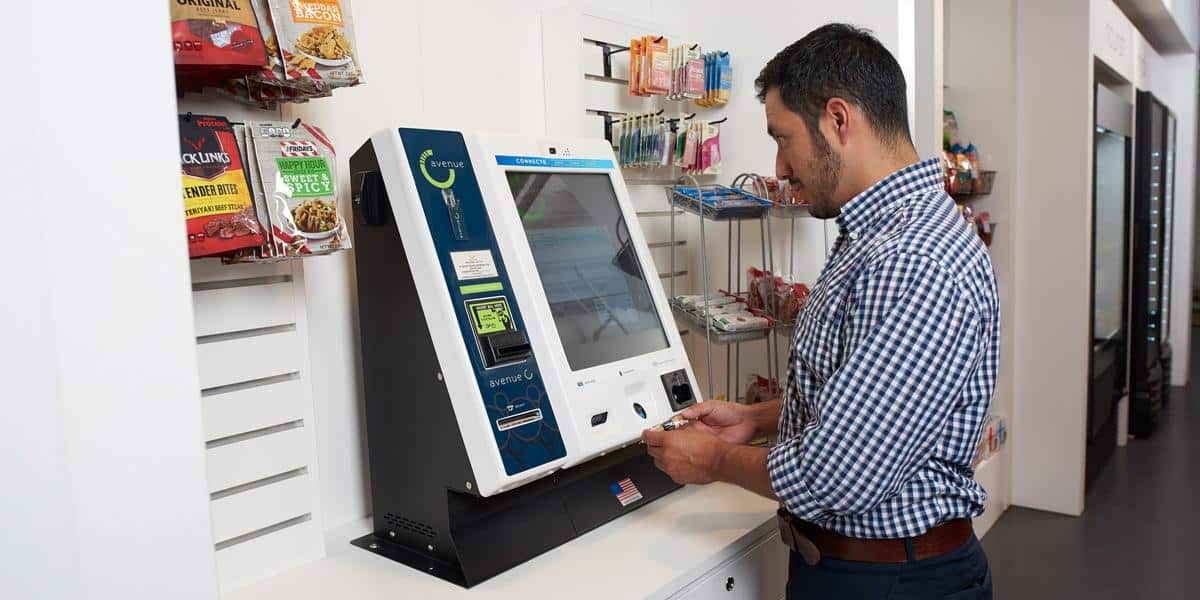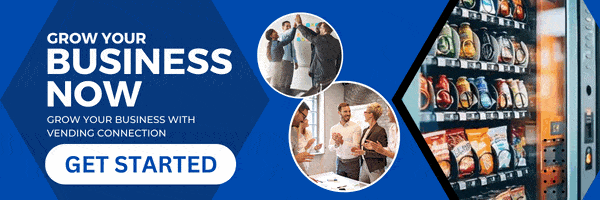How To Navigate The Connectivity Options For Micro Markets
 Micro markets require connectivity to allow customers to pay at the kiosk, check their account balance, report inventory levels, allow diagnostics, update firmware, provide sales data and more.
Micro markets require connectivity to allow customers to pay at the kiosk, check their account balance, report inventory levels, allow diagnostics, update firmware, provide sales data and more.
The connection types include local Internet connections, local Wi-Fi, purchased air cards, MiFi, jetpack, purchased hardware and data plans and fully managed solutions. It’s important to valuate the benefits of each one to figure out which option will fit your needs in order to reduce downtime, speed up the installation time, cut down service calls, provide help with troubleshooting, save money and generate more revenue.
Based on your company’s needs and how many resources that are being allocated for communications, an evaluation of the listed pros and cons should help determine which method of connectivity works best for you.
With more pros than cons, managed connectivity is always a great option for micro markets. By outsourcing the mission critical component of connectivity to a dedicated team of experts you can be sure to have the greatest uptime and reliability available.
Following are the pros and cons for using existing local Internet connections.
Pros:
- No monthly data costs
- Decent bandwidth speeds
Cons:
- Getting permission from IT can be a lengthy process and involve high implementation costs
- Possible need to open firewalls or to enable security rules with IT can be burdensome
- Static IP connections are rare
- Can suffer from spotty Internet service or poor download/upload speed
- Local IT may be resistant or unwilling to troubleshoot your potential Internet issues
Following are pros and cons of using local Wi-Fi.
Pros:
- No monthly data costs
Cons:
- Not a secure connection method
- Limited range or distance
- Network names and passwords are subject to change
- Slow connections
- Wi-Fi may not be PCI compliant
Following are pros and cons of using a purchased aircard, MiFi or jetpack.
Pros:
- Set-up is fairly simple
Cons:
- Monthly data costs
- Subject to either overages or slowing after certain data thresholds
- To reset lost connections usually requires a manual power cycle
- Designed for personal not commercial use
Following are pros and cons of using purchased hardware and a set-up data plan.
Pros:
- Operator has full control of the hardware and data plans
Cons:
- Monthly data costs
- Setting up the configurations with all of the different options can be difficult for a novice
- Coordinating data plans to be as low as possible without hitting overages can be a balancing act
- Maintaining portfolios with software versions can require dedicated resources to communications
- Unlikely the company would want to coordinate both billing and data plans with more than one carrier
- If only using a single carrier, some locations may suffer from poor coverage or limited bandwidth
Following are pros and cons of using a managed solution.
Pros:
- Single source of contact 24/7 support
- Ease of installation for virtual plug and play. When specific routing or settings are needed, dedicated technical support to assist set-up
- Security, connectivity, profiles, firmware are handled
- Ability to have multiple carriers and just pay one bill
- Carrier options to provide best coverage and bandwidth in any given area
- Purchase and lease options available
Cons:
- Monthly data costs
- Possible threat to job security for dedicated communication staff
By Rob Ramage, OptConnect Support Engineer
For more information visit http://www.optconnect.com/
![]() Vending Technology News | More News | Vending Newsletter sign up | Questions? Contact us | email press release
Vending Technology News | More News | Vending Newsletter sign up | Questions? Contact us | email press release
Also see: Software Companies | Technology Companies | Micro Markets | Cashless Vending | Distributors | Classified Ads | Routes for sale | Vending Companies USA | Home |
VENDING YELLOW PAGES DIRECTORIES:
Call us at 1-800-956-8363, POST YOUR COMPANY, GET NEW BUSINESS!




